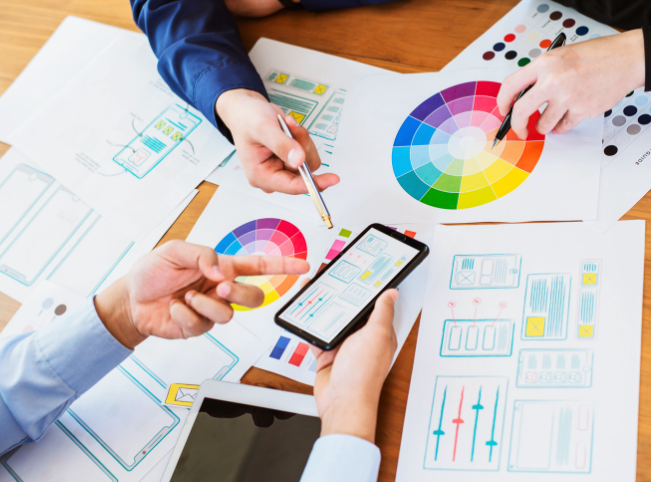
UI/UX Trends Shaping the Future of Web Design
Web design is constantly evolving, and as we move into 2025, UI/UX trends are becoming more dynamic, user-focused, and technologically advanced. Businesses and designers need to stay ahead of these trends to deliver engaging, intuitive, and efficient web experiences. Let’s explore the key UI/UX trends shaping the future of web design.
AI-Driven Personalization
Artificial intelligence (AI) is enhancing user experiences by delivering hyper-personalized content. Websites now analyze user behavior in real-time to customize layouts, recommendations, and navigation, making interactions more intuitive and engaging.
Voice User Interfaces (VUI)
Voice search and voice-driven interactions are becoming mainstream. Websites are integrating VUI elements to enhance accessibility and improve user engagement, allowing hands-free navigation and smart voice assistance.
Dark Mode and Customizable Themes
Dark mode has gained popularity, and in 2025, websites are offering users the ability to switch between themes based on preference. Customizable UI themes improve accessibility and user comfort, catering to different viewing environments.
Neumorphism and Soft UI
Aesthetic trends like neumorphism, which blends skeuomorphism and flat design, are redefining UI elements. This soft UI approach adds depth, subtle shadows, and a futuristic feel to web interfaces, making digital interactions more tactile.
Augmented Reality (AR) Integration
AR-driven web experiences are growing, particularly in e-commerce, real estate, and virtual showrooms. Users can now visualize products in their real-world environment, enhancing engagement and purchase confidence.
Advanced Microinteractions and Animations
Microinteractions—subtle animations that guide user actions—are becoming more sophisticated. Smooth transitions, hover effects, and interactive animations make web navigation seamless and visually appealing.
Minimalism with Bold Typography
Minimalist designs are focusing on bold typography, simple color schemes, and clean layouts to improve readability and user engagement. This trend prioritizes content and reduces visual clutter for a modern, elegant look.
Immersive 3D Elements
3D design elements are enhancing web interactivity. From 3D illustrations to immersive parallax scrolling effects, these elements add depth and engagement, creating a captivating user experience.
Mobile-First and Adaptive Design
With mobile traffic dominating web usage, mobile-first design is crucial. Websites are focusing on adaptive layouts, touch-friendly interfaces, and responsive designs to ensure seamless experiences across all devices.
Accessibility-First Design
Inclusivity is a priority in web design. More websites are integrating accessibility features like voice navigation, screen reader compatibility, and high-contrast modes to ensure usability for all users.

Final Thoughts
The future of web design is all about user-centric innovation. By incorporating AI, AR, microinteractions, and accessibility-first principles, businesses can create immersive and efficient digital experiences. Staying updated with these UI/UX trends will help designers craft websites that are not only visually stunning but also highly functional and engaging.





































